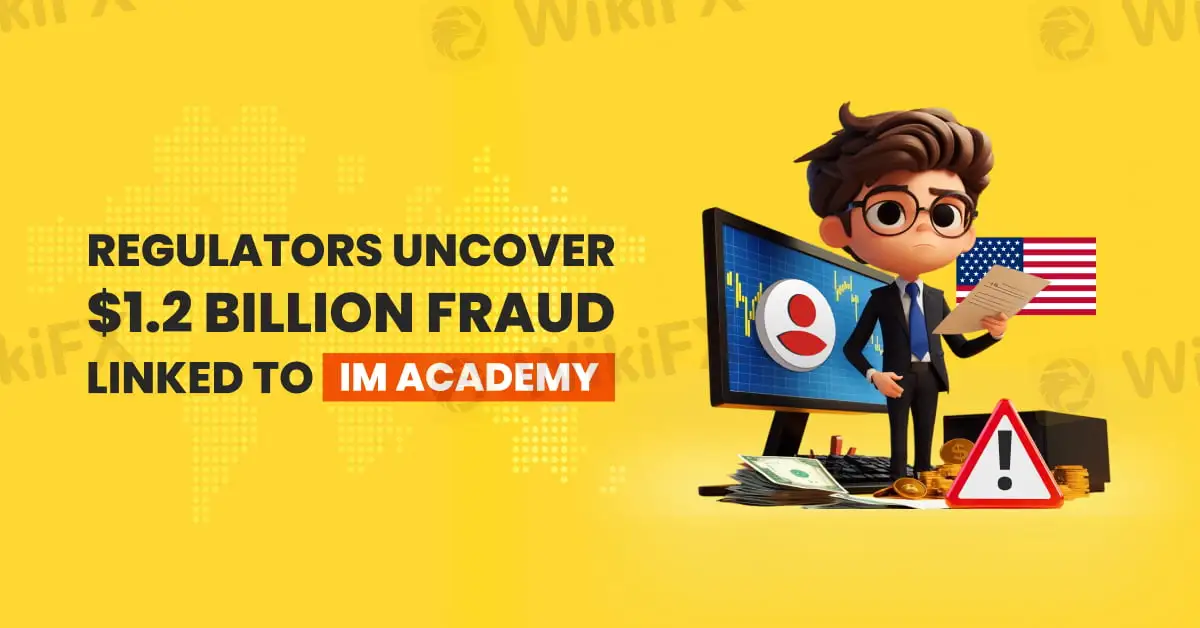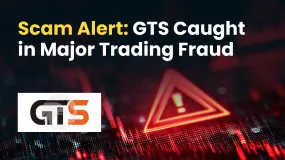简体中文
繁體中文
English
Pусский
日本語
ภาษาไทย
Tiếng Việt
Bahasa Indonesia
Español
हिन्दी
Filippiiniläinen
Français
Deutsch
Português
Türkçe
한국어
العربية
Regulators Uncover $1.2 Billion Fraud Linked to IM Academy
Abstract:A global investment training company operating under multiple brand identities has come under intense legal scrutiny after being accused of defrauding consumers of over $1 billion. The Federal Trade Commission (FTC) and the state of Nevada jointly filed a lawsuit on Thursday, alleging the company used deceptive tactics and exaggerated income claims to lure thousands of individuals into its schemes.

A global investment training company operating under multiple brand identities has come under intense legal scrutiny after being accused of defrauding consumers of over $1 billion. The Federal Trade Commission (FTC) and the state of Nevada jointly filed a lawsuit on Thursday, alleging the company used deceptive tactics and exaggerated income claims to lure thousands of individuals into its schemes.
The business, collectively known as IML, conducted operations under various names, including IYOVIA, IM Mastery Academy, iMarketsLive, and IM Academy. It promoted training in areas such as cryptocurrency, binary options, foreign exchange, and stock trading. Regulators claim that while IML promised substantial financial returns, internal data painted a far bleaker picture.

According to the complaint, IMLs marketing suggested that individuals could earn as much as $750,000 a month. However, the reality was starkly different. Only a small fraction, roughly 20%, of participants made more than $500 in sales commissions. For the majority, average annual earnings amounted to just $77.51 in 2022.
The FTC highlighted that the organisation primarily targeted young adults through social media campaigns, particularly those aimed at college students. Investigations revealed that many of IMLs so-called “educators” lacked formal financial qualifications, often relying on content from platforms such as YouTube or internally generated promotional materials. This raised concerns about the quality and legitimacy of the training provided.
Furthermore, data indicated that nearly 90% of customers ceased using IMLs services within six months of joining, which is a figure that regulators interpret as a strong signal of consumer dissatisfaction and potential financial harm.
The FTC contends that IML functioned as a multi-level marketing (MLM) operation. Members were encouraged to recruit new participants while selling access to the companys educational content. This recruitment-driven structure, according to the lawsuit, allowed the firm to amass approximately $1.2 billion from consumers since 2018 under misleading premises.
The company‘s founders, Christopher Terry and Isis Terry, are named in the lawsuit, along with leading promoters Jason Brown, Alex Morton, Matthew Rosa, and Brandon Boyd. They face charges of violating several federal laws, including the FTC Act, the Telemarketing Sales Rule, and the Restore Online Shoppers’ Confidence Act.
Regulators stressed the severity of the alleged misconduct. The FTCs Bureau of Consumer Protection emphasised the broad scale of the operation and the significant damage inflicted, particularly on younger consumers seeking financial independence. The agency underscored that unrealistic income projections and unsupported claims of financial expertise misled many individuals.

Disclaimer:
The views in this article only represent the author's personal views, and do not constitute investment advice on this platform. This platform does not guarantee the accuracy, completeness and timeliness of the information in the article, and will not be liable for any loss caused by the use of or reliance on the information in the article.
Read more

Zerodha Scam: Investor Loses ₹3.5 Lakh ! Spot the Red Flags & Protect Yourself
Indian investor Maryam Khan, 35, was scammed out of nearly ₹35 Lakh in a fraudulent stock investment scheme orchestrated by individuals impersonating the legitimate financial firm Zerodha. The scam began when Khan came across a Facebook Reel on July 4 promoting fake investment opportunities. After contacting the WhatsApp number listed in the ad,

Scam Alert: GTS Caught in Major Trading Fraud
Have you been deceived by GTS officials? Has this forex broker prevented you from withdrawing funds? Unfortunately, you have been scammed! File a complaint with the authorities soon to recover your funds. Many have accused this forex broker of serious fraud allegations on several broker review platforms. Our WikiFX team found a massive number of trader complaints against this broker. In this article, we will share them with you.

Forex Trends Explained for Your Successful Trading Experience
The dynamism of the forex market is full of trends - positive, negative and neutral. As trade intensifies, the currency pairs get into the action mode with ups and downs, causing frequent changes to investor mindsets. The market is like a rollercoaster ride, thanks to forex trends. Understanding what these trends indicate will help you take necessary investment calls for sustained success.

Best 5 Low-Spread FX Brokers in India 2025
Forex trading has grown rapidly in India, and choosing the right broker is critical—especially when it comes to spreads. A low spread broker means lower trading costs and higher potential profits, especially for active traders and scalpers. In this article, we list the top 5 low-spread forex brokers in India for 2025, trusted for their tight spreads, fast execution, and strong global reputation.
WikiFX Broker
Latest News
Datuk Seri Linked to RM8.4 Million Gold Investment Scam Under Police Probe
The Psychology Behind the Ascending Triangle Pattern in Forex
Charles Schwab Forex Review 2025: What Traders Should Know
The Global Inflation Outlook
What WikiFX Found When It Looked Into XS
ASIC Regulated Forex Brokers: A Comprehensive 2025 Guide
Is TradeEU Reliable in 2025?
Professional Forex Trading: Skills, Tools, & Strategies for Success
Investing in OnFin? Absurd Withdrawal Conditions & Trade Manipulation May Spoil Your Trading Mood
How Commodity Prices Affect Forex Correlation Charts
Currency Calculator


